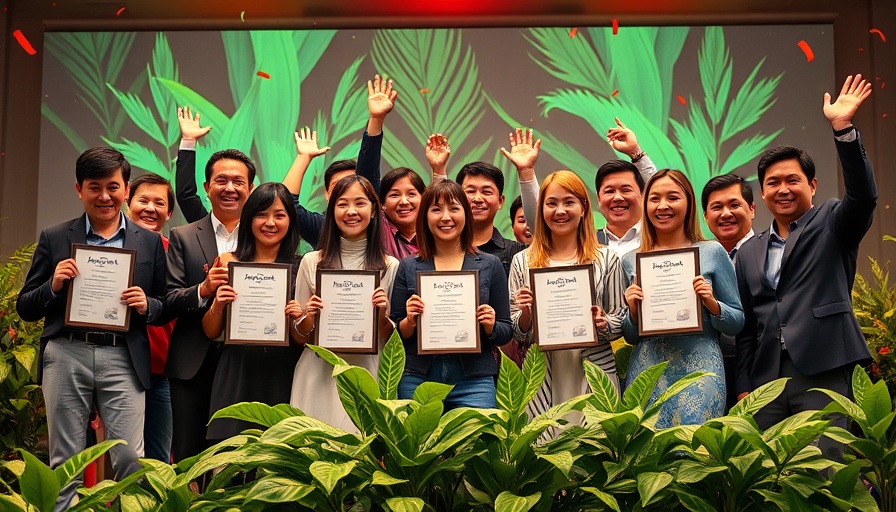
Biodiversity Crisis in Eastern and Southern Africa: A Striking Call to Action
In a striking revelation, Eastern and Southern Africa is lagging behind on biodiversity goals critical for sustainable development. At a recent event celebrating 50 years of advancement in resource mapping, Deus Gumba, Malawi’s Minister of Lands, launched the RCoE Map Book, an essential document outlining spatial data and insights on biodiversity across 24 countries. This publication not only highlights protected areas but also illuminates the conservation efforts in a region that is, concerningly, falling short of its commitments to biodiversity restoration.
The Urgent Need for Commitment and Action
As of 2025, only Uganda and Tanzania are found to have complied with the Kunming-Montreal Global Biodiversity Framework by submitting their National Biodiversity Strategic Action Plans (NBSAPs). With 22 other nations still in preparation or lacking submissions, the urgency is palpable. This report comes shortly after the COP16 in 2024 and ahead of the upcoming COP17 summit in Yerevan, Armenia. The submission deadline in February 2026 looms, and the pressure is on for nations to fulfill their obligations prior.
Harnessing Geospatial Science for Biodiversity
Dr. Emmanuel Nkurunziza, Director General of the Regional Centre for Mapping of Resources for Development (RCMRD), indicated that geospatial science can significantly enhance conservation and sustainable development initiatives. By employing data-driven planning and ecosystem mapping, countries can strategize on restoring biodiversity-rich environments such as forests and wetlands. The Map Book serves not just as a publication but as a vital tool for strategic planning that can transform how biodiversity is approached in the region.
Failure to Act: Risks and Consequences
The lack of timely NBSAP submissions poses a dual risk: it not only jeopardizes regional efforts to combat biodiversity loss but also threatens global initiatives. The intersection of technological advancement with environmental strategy is critical. As nations delay submissions, they forsake opportunities to harness innovations such as AI and IoT for better decision-making in biodiversity-related projects. The journey towards sustainable tech innovations and e-solutions could dramatically facilitate biodiversity tracking and protection initiatives.
The Role of Technology in Biodiversity Conservation
Innovative solutions in cloud computing, data analytics, and even blockchain are increasingly pivotal in driving conservation efforts. For instance, advancements in drone technology and machine learning can allow for real-time monitoring of biodiversity levels and the identification of endangered ecosystem areas. Emphasizing tech entrepreneurship and digital transformation not only aids biodiversity conservation but can lead to sustainable business opportunities, thereby encouraging more stakeholders to join the cause.
Future Predictions: Opportunities in Biodiversity Management
Looking ahead, the path to meeting biodiversity goals can benefit immensely from the implementation of smart technologies. Smart cities and renewable energy initiatives can emerge from collaborative efforts focused on green technology. As governmental bodies recognize the value of integrating digital tools into biodiversity strategies, local startups can thrive, enhancing areas like agri-tech and fintech as they address environmental challenges through innovative business models.
The Power of Collective Action
To truly shift the landscape of biodiversity in Eastern and Southern Africa, collective action is essential. Governments must collaborate with startups, NGOs, and tech innovators to develop a comprehensive framework that encourages data sharing and capacity building. By leveraging diverse perspectives, the region can construct a more robust approach to biodiversity restoration that acknowledges local contexts while embracing global standards.
Conclusion: A Call to Action for All Stakeholders
As we face these pressing challenges, it is paramount for all stakeholders, including decision-makers, to prioritize immediate action. The time to act on biodiversity goals is now. By fostering environments where digital solutions can intersect with environmental strategy, we can not only secure a sustainable future for our rich biodiversity but also innovate pathways toward economic development.
Join the movement for sustainable change – your commitment today can make a difference tomorrow!
 Add Row
Add Row  Add
Add 




Write A Comment